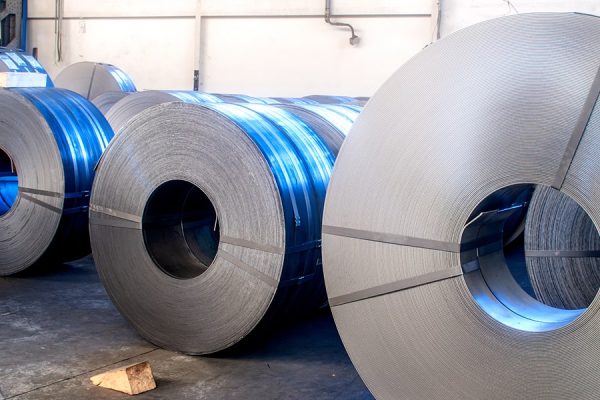Get Answers to Frequently Asked Questions About Aluminized Steel
Block Steel has been providing customers throughout the country for more than 70 years. A perfect production material for many different industries, aluminized steel is a popular options for applications dealing with high temperatures or highly-corrosive conditions. Whether you need large sheets or metal cut to your specifications, we can provide high quality aluminized steel that will meet your needs. In today’s post, let’s learn more by answering some frequently asked questions about aluminized steel, stainless steel and how they differ.
What is the Difference Between Aluminum and Aluminized Steel?
Aluminum is an element which is valued in production due to its ability to resist corrosion. Aluminized steel is an alloy created by taking steel and dipping it into molten aluminum, forming a corrosion-resistant coating. Aluminized steel has three layers. There’s the innermost layer which is the steel core. There’s are then two layers of aluminum, the outer of which has been oxidized.
Is Stainless Steel Lighter Than Aluminized Steel?
Depending on the grade of the stainless steel, it is generally heavier than aluminized steel in most cases. Stainless steel is a mixture of steel with other elements, including at least 10.5% chromium. This process of creating stainless steel results in a strong, corrosion-resistant metallic alloy with a shiny surface that is preferred for applications where aesthetics are important.
Does Aluminized Steel Rust?
Like other metal surfaces, aluminized steel can become vulnerable to corrosion and rust if the outer coating is peeled away, chipped, or broken. As long as the surface is cleaned and maintained properly, the aluminized steel will continue to resist rust and corrosion so long as the outermost aluminum layer remains intact.
Is Aluminized Steel Better Than Stainless Steel?
Depending on the application you need steel for, you may choose between stainless steel and aluminized steel. For general, aesthetic applications, stainless steel is considered the better option. However, in applications where the steel will be exposed to higher temperatures, then aluminized steel is the better option, due to its higher thermal resistance. This makes aluminized steel a great option for furnaces, exhaust systems, water heaters, and more.
Get the high quality aluminized steel you need for your production by contacting Block Steel today!





